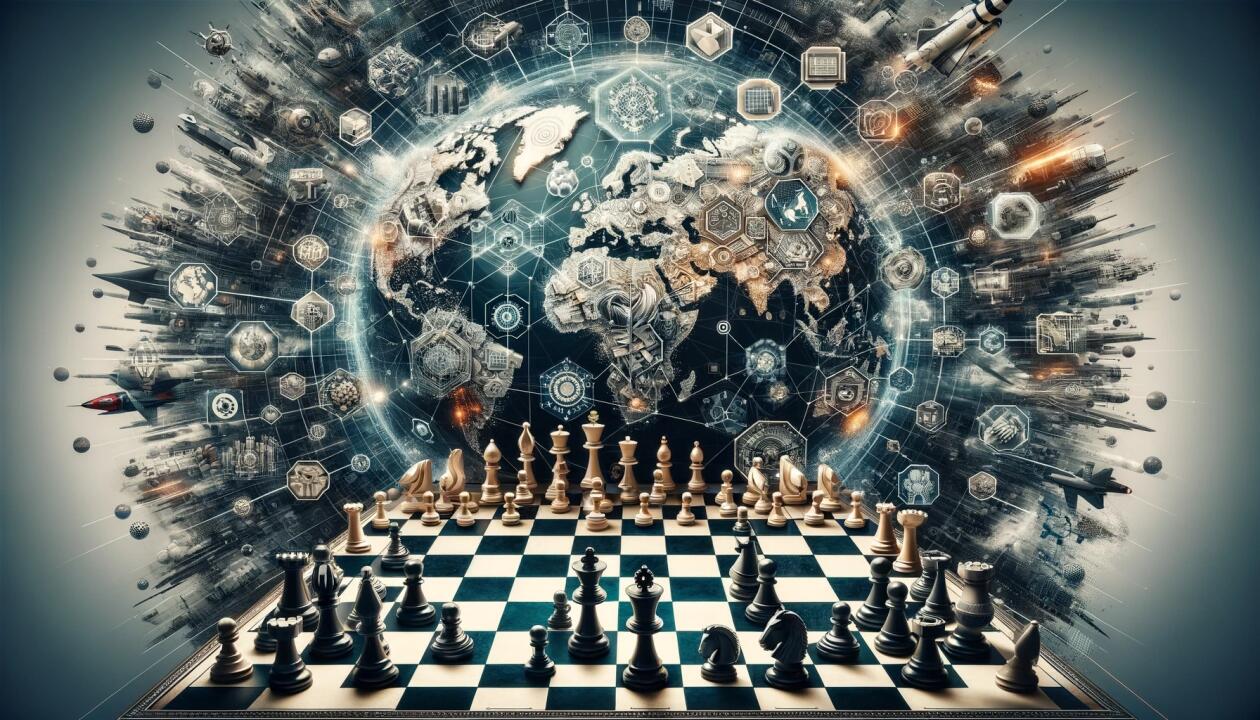Authored by Mikkel Thorup via InternationalMan.com,
Canada is often portrayed as a land of freedom, opportunity, and prosperity. Reality, however, tells a different story...

Statist policies, crushing taxes, bloated bureaucracy, and a society overtaken by woke ideology have shattered Canada. This
is a cautionary tale for those looking at Canada as an ideal living
space. If you are asking yourself what living in Canada is like, let me
explain: Canada is not a land of fulfilled dreams but of enduring harsh
conditions and barely getting by.
As
if economic hardships aren’t enough, Canadians are also oppressed by
the Orwellian newspeak that woke culture is creating. If you speak your
mind, you’re labeled a fascist. If you question social policies, you’re
accused of microaggressions.
There are no best places to live in Canada anymore. As a Canadian, I see little chance of Canada becoming livable again. Since I founded Expat Money in 2017, I have been helping expats build their Plan-Bs to protect their wealth and freedom and leave countries like this one.
Let’s look at the unfortunate condition that Canada has fallen into.
The Restrictions Imposed During Covid
The
strict quarantine measures and harsh government interventions
implemented in Canada during the COVID-19 hysteria were shameful. The government expanded police and administrative powers to smash public backlash against its COVID policies.
A
significant protest movement called The Freedom Convoy began in early
2022. Truckers and citizens held large demonstrations in Ottawa against
vaccination mandates, harsh pandemic restrictions, and the government’s
authoritarian tendencies.
Former
Prime Minister Trudeau used extraordinary powers to freeze the bank
accounts of protesters and crack down on activists. Individual and
property rights were arbitrarily violated.
The Canadian government
imposed mandatory vaccinations on federal employees, healthcare
workers, and those in the transportation sector, turning personal health
decisions into state mandates. Those who were not vaccinated were
suspended from their jobs, their travel rights were restricted, and they
were ostracized from society. Even the private sector was coerced to
impose vaccinations under government pressure.
Moreover, harsh lockdowns and restricted entry into the country forced businesses into bankruptcy. Massive numbers of people lost their jobs, and the government’s financial structure was severely damaged.
Woke Culture And The End Of Free Speech
The problems aren’t limited to elections. In recent years, woke ideology has overtaken Canada’s politics, education system, and workplace.
This “progressive” ideology has replaced individual freedoms and
meritocracy with the so-called principle of inclusivity and equity. As a
result, freedom of speech has been destroyed, social engineering has
increased, and social polarization has deepened.
In Canada, laws
enacted under the guise of “combatting hate speech” have imposed
mandatory language use by the government, determining how individuals
should speak.
Now, we have another Bill C-11 to update the
Broadcasting Act. The government’s media watchdog, the CRTC, will now be
able to monitor online platforms such as YouTube, TikTok, and Spotify.
Bill C-11 is a censorship tool to kill free speech in Canada. The
government may have sugar-coated the law by saying, “We support Canadian
content,” but at its core, it’s an attempt to take control of the
internet. The government deciding what content is “sufficiently
Canadian” will soon become a matter of deciding what content is
appropriate, approved, and safe.
What
about Bill C-18? This is another example of an intervention that
legislates internet censorship under the pretext of “protecting the
independent press.” Bill C-18 requires internet platforms
(especially companies like Google and Meta) to pay media outlets for
news content. The government is turning content sharing into an economic
penalty to extract money from big tech companies.
Because of this
law, platforms like Google and Meta have decided to remove news content
completely. In other words, the government’s move to “access
information” has actually restricted access to information.
Similarly,
due to cancel culture, academics, business people, and members of the
media are censored, fired, and subject to social lynching when they
voice different views. Diversity, equity, and inclusion (DEI) policies,
especially in business and academic institutions, cause decisions to be
made based on identity rather than merit. Canadian universities have
been degraded from institutions that encourage intellectual freedom into
ideological centres where a singular type of thinking is imposed.
Companies must prioritize political correctness over efficiency and
productivity in business life. Canada has shifted from a society based
on individual freedom and voluntary cooperation to a system governed by
the ideological impositions of the government.
Assisted Suicide And Moral Decline
Indicators of Canada’s political and economic collapse can also be traced to the individual level.
The rapid increase in Medical Assistance in Dying (MAiD) applications
in Canada has led to deep debate on personal freedoms, ethical values,
and the role of the state in the country.
Canada has
the fastest-growing assisted suicide program in the world. When MAiD was
legalized in 2016, it only included individuals with terminal
illnesses. However, over time, the criteria were relaxed and expanded to
include psychological disorders or illnesses that do not have a natural
death period. In 2021, approximately 10,000 people ended their lives
under MAiD. This number constitutes 3.3% of all deaths. Even people who
were experiencing financial difficulties or housing problems resorted to
euthanasia, causing heated arguments in the public domain.
In the
face of all the challenges, assuming Canada has a functioning social
welfare state would be unwise. Canada’s health system is seriously
unreliable because of long waiting times, overburdened hospitals, and
staff shortages.
Before
moving to Canada, be mindful that you can wait months to years for
doctor’s appointments and surgeries. The shortage of doctors and nurses
severely disrupts health services. Excessive bureaucracy and limited
private health services make the health system even more inefficient.
Federal Government Overreach
The
federal government’s drama is not Canada’s only political issue. The
political conflict between the federal and provincial governments is
becoming a serious problem.
There are several main disagreements between the federal and provincial governments:
First,
the federal government’s carbon tax has drawn fierce criticism from
energy-independent provinces such as Alberta, Saskatchewan, and Ontario.
Second,
the federal government demands that the provinces spend more on
healthcare financing, while the provinces say they are underfunded and
subject to excessive federal intervention.
Third,
immigration has exacerbated the housing crisis and the burden on public
services in large provinces such as Ontario, Quebec, and British
Columbia. The provinces demand more funding, saying they shoulder much
of the cost burden, but funding is unavailable.
Fourth,
the federal government’s policies restricting fossil fuel use continue
to economically harm provinces such as Alberta and Saskatchewan, which
depend on oil and gas.
It’s no surprise that many people in Alberta and the Prairie provinces responded positively to Trump’s annexation proposal.
It reflects a deep and long-standing frustration with federal control
over energy policy. At the same time, a grassroots “Make Alberta Great
Again” movement is gaining real traction. Pro-separation initiatives are
picking up momentum, with growing calls for a referendum on Alberta’s
independence.
Even Bill 54, passed in May 2025, lowered the
threshold required to trigger a referendum on the province’s
sovereignty. Now it’s easier for separatist groups to push for a vote.
I
was in Alberta last year and met with several people involved in the
movement in person. We spoke at length about the political landscape,
their frustrations, and their hopes for Alberta’s future. Many of them
told me that, while they believe strongly in the cause, they also know
how easily their involvement could make them political targets. That’s
why they’re working on their Plan-B strategies to protect themselves and
their families if things take a turn for the worse.
Over-Regulation And High Taxes
Strict
government regulations and high tax rates in Canada negatively impact
economic growth and entrepreneurship by increasing the financial burden
on individuals and businesses.
Let me give you an
example. Ontario’s total income tax payment can be as high as 53.5%.
These high tax rates reduce the disposable income of individuals and
businesses and restrict economic mobility. Under the guise of “Tax the
rich” and “Pay your fair share,” the Canadian government began taxing
capital gains over $250,000 CAD at up to 66.6% starting in 2024. Being
an entrepreneur or creating economic productivity in Canada is one of
the government’s favourite activities to punish.
High Cost Of Living
Rising
real estate prices, the cost of essential consumer goods, and
transportation have greatly increased the economic burden on
individuals. Real estate prices have reached astronomical levels in
cities like Vancouver and Toronto. This fact makes home ownership nearly
impossible for the middle class. The lack of affordable housing options
is threatening life in Canada.
With average home prices
pushing $730,000 CAD ($536,000 USD), double-digit inflation on food and
energy, and yet another round of carbon taxes, everyday life in Canada
has become flat-out unaffordable. More and more people are
waking up to the reality that they can live better, in places like Latin
America, for a fraction of the cost and without being punished for
simply trying to get ahead.
Most people seeking to migrate to
Canada think about living in Toronto. The average rent for a one-bedroom
apartment in Toronto is around $ 2,500 CAD ($1,700 USD). If your job is
in Vancouver, the average rent for a one-bedroom apartment is around
$2,700 CAD ($1,900 USD).
Living expenses in Toronto and Vancouver
are sky-high, and if you’re hoping Montreal offers a more affordable
alternative, you’ll be disappointed—it’s just as costly. Factor in
additional expenses for your family, and Canada quickly becomes an
impractical place to invest in or build your future. It is difficult to
see the benefits of living there.
The rapid growth of Canada’s
immigrant population has also become another socio-economic issue.
Canada does not have a dynamic market economy that can absorb all
immigrants without lowering the standard of living of other citizens.
Therefore, economic difficulties have not only caused immigrants to
become targets but also a threat to social peace.
Elections In Canada
Do you recall the political debate that flared up after Trudeau’s resignation, revealing Canada’s polarized politics?
Canadian politics was left in confusion about which way to turn after
U.S. President Donald Trump hinted at annexing Canada as the 51st state.
What
an absolutely painful circus to watch unfold. After being thoroughly
humiliated by Trump and losing whatever political capital he had left,
Trudeau stepped down, hoping to give the Liberals one last shot at
survival in the next election.
The Liberals wasted no time in installing Mark Carney, a globalist even more elitist than Trudeau, as Prime Minister.
As a career technocrat, Carney’s credentials read like a who’s who of
globalist power centres—Goldman Sachs, the Bank of Canada, the Bank of
England, and the World Economic Forum.
When I saw that the
so-called conservative Pierre Poilievre was positioned to run against
Carney in the snap elections on April 28, 2025, it became obvious that
the entire contest was pure theatre. Poilievre played his part
well, talking tough, staying on script, and never crossing the lines he
wasn’t supposed to. In an election where the outcome was never in doubt,
Carney picked up where Trudeau left off.
What’s truly
hilarious is that Canadians rallied behind Carney, thinking he was the
tough guy who could stand up to Trump, as if a globalist banker could
salvage national pride. They saw him as the unifier for the challenges
ahead, not realizing he was just the next polished face of the same
worn-out agenda. They did not hesitate to choose a copy of the same man
as their hope, as if they had forgotten why they had withdrawn their
support for Trudeau.
Watching these painful realities from a
distance, I feel compelled to speak the truth. Liberals and
conservatives are inflicting irreparable wounds on social cohesion
without knowing that the system itself is rigged. Political scandals,
unfulfilled campaign promises, and a lack of transparency continue to
fuel growing skepticism toward Canadian leaders. My only hope is that
more people begin to realize there are far better places to live and
truly thrive outside of Canada.
Canada is no longer worth
the debate. Broken systems, high taxes, lost freedoms, there’s nothing
left to fix. The smart ones aren’t waiting. They’re departing.
Conclusion
It’s
time to stop calculating the pros and cons of living in Canada. There
are no advantages at all. Canada is a country stuck under high taxes,
failing public services, ideological impositions, and an increasingly
authoritarian government. Buying a house has become a dream, healthcare a
lottery, and freedom of expression a luxury.
Even worse,
despite all these problems, there is no will to fix Canada’s future.
Canada has become divided by ideological wars between ever-growing state
control and failed economic policies. Simply put, the best place to
live in Canada doesn’t exist.
The answer for those
looking to secure their future is to look beyond Canada. If you don’t
want to be penalized for your success, crushed by high taxes, and
deprived of your fundamental rights, now is the time to explore
alternative countries that genuinely value freedom and opportunity.




